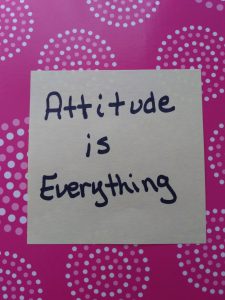
by Claire Davis | Jan 13, 2022

Being more active is one of the top New Year’s Resolutions.
Photo credit: UF/IFAS Photo: Sally Lanigan.
Well, it’s that time of year again. January 1st has finally rolled around and I still have not completed last year’s New Year’s Resolution. If you’re like me, your resolution is to lose weight in 2022. Maybe you have chosen to quit smoking, exercise more, or try to be more positive. Maybe these resolutions sound familiar to you because they were last year’s resolutions, too!
You don’t have a New Year’s Resolution yet? Below is a list of some of the most common New Year’s Resolutions that could help you spark an idea!
-

Exercising with others can help you stay on track to reach your wellness goals.
Photo credit: UF/IFAS Photo: Josh Wickham.
Exercise more
- Lose weight
- Get organized
- Learn a new skill or hobby
- Save more money
- Quit the use of tobacco
- Quit the use of alcohol
- Spend more time with family and friends
- Travel more
- Read more
So, how do you ensure that you are going to stick to your resolution? Below are a few New Year’s Resolution tips to help us create long-lasting change:
- Dream big! The bigger, the better. Do you want to learn to run a marathon? Do you want to fit back into those jeans you wore in high school? Being ambitious will help inspire others around you to cheer you on toward those goals.
- Break that big dream down into smaller pieces. Running 26 miles seems daunting, but when you start with just walking 1 mile, you will soon gain the confidence to push for more. Choosing to reach for healthier snacks, such as carrots or celery instead of potato chips, is a small change that can affect your diet. You do not have to deprive yourself of foods you enjoy to lose weight. You just have to focus on portion control. Small steps will move you forward to your ultimate goal.
- Commit yourself to your goals! Write them down, post your goals on social media, or verbally promise to others that you are going to do it. Hold yourself accountable to what you are trying to do. Sometimes, making a public announcement will encourage others to join you on your journey. They can push you to be the best version of yourself, while also holding you accountable.
- Give yourself a pat on the back! “Rome wasn’t built in a day.” Well, neither will you accomplish your end goal in one day. Typically, our new year’s resolutions take time, sometimes a very long time. Encourage yourself to keep going by acknowledging what you do accomplish!
- Learn from your past. I am not perfect, you are not perfect, no one is perfect! We all stumble at times, but it is how we recover that will set us up for success or failure. If you “fall off the healthy-eating train” one evening, don’t beat yourself up or give up. Tomorrow is a new day, and you can resolve to recover from your mistakes to get back on track.
- Support! I have mentioned inspiring others already, but you need support, too. Accept help from those who care about you to help you achieve your goals. Consider joining a support group, such as a workout class at the gym or a group of co-workers to quit smoking. These individuals share your struggles and want to see you succeed, which makes the challenge less intimidating!
- The 3 R’s: Reflect, Replace, and Reinforce. The 3 R’s can help you make a long-term change. Reflect on your current situation, i.e. eating habits. Replace those unhealthy habits with healthier ones. Reinforce these changes in your daily life.

Use the Nutrition Facts label to make healthy food choices.
Photo credit: UF/IFAS.
According to the American Psychological Association, “By making your resolutions realistic, there is a greater chance that you will keep them throughout the year, incorporating healthy behavior into your every day life.” The dreaded New Year’s Resolution does not have to seem unattainable. If you plan to make a New Year’s Resolution this year, limit the number of resolutions you choose so that you can focus on them. By creating new habits and making small changes, you can do anything you put your mind to!
Sources:
https://www.health.harvard.edu/staying-healthy/seven-steps-for-making-your-new-years-resolutions-stick
https://www.apa.org/topics/behavioral-health/new-year-resolutions
https://www.dhs.gov/employee-resources/blog/2020/01/07/new-years-resolutions

by Gretchen Thornton | Jan 13, 2022
The Art of Effective Communication
SMART Couples Florida Celebration
Statewide Virtual Event
February 19, 2022
6:00 – 9:15 p.m. EST

Photo source: Victor Harris
It’s time to talk about love! Join us online for a night of real talk about building stronger relationships from marriage and family professionals across the nation. Learn how to improve your communication and keep the romance alive. Tickets available now!
Learn more here: https://smartcouples.ifas.ufl.edu/flcelebration/

by Gretchen Thornton | Oct 11, 2021

Managing your time wisely can reduce stress.
Photo credit: UF/IFAS Photo by Sally Lanigan.
Time management plays an important role each day. All people have 24 hours in a day, but how those hours are used can be different for each person. Individuals can have more control of their lives, less stress, and more free time if they have good time management skills.
Many people may feel like they have too much work to do, which causes assignments and tasks to be completed late or not at all. Individuals are late to school or work, which can cause stress throughout the day. Everyone would love to have more time to do their favorite things.
Time Management Tips
The key is to use time wisely so individuals will have time for both their needs and their wants. Time management tips will help structure their day. Each day, make a “To-Do List” – write down the items from the most important to the least important. Second, staying organized is a big time saver. Preparing for the next day before going to bed will reduce morning stress so you can enjoy your breakfast. A planner will track assignments, tests, and appointments. A wall calendar can help schedule significant events and deadlines.
On Sunday night, plan out the week and review time for each daily step in the schedule. When writing the schedule, include all appointments, practices, chores, and mealtimes; it will help show times for homework, studying, relaxation, and social activates.
Successful individuals use tips such as the ones below to help manage their time:
- Use free time in school or work wisely.
- Review time while waiting. An example of this is reviewing notes while waiting for a ride.
- Create routines – good morning and nighttime routines can save time.
- Say “No!” – do not let things get in the way of reaching a positive goal.
- Sleep healthy – do not give up a good night’s sleep; this will increase stress.
There are 24 hours in a day/168 hours in a week, and it is up to the individual how they use their time. Planning for free time plays an essential role in time management. An individual needs to balance doing things alone or with their friends, managing time inside and outside, and prioritizing throughout their lives.
Positive Attitude
Everyone gets stressed out, discouraged, or overwhelmed sometimes. The idea is to keep a positive attitude and design ways to stay motivated. When people have a positive attitude, they will go far in life.
Sometimes, someone may give up on schoolwork, think negative thoughts, feel frustrated, or would like to have more optimistic goals. When a person is having a rough time, they can surround themselves with positive people, believe in themselves, and move forward with positive energy.
Throughout life, they will come across all kinds of people. They will meet positive influences in their lives. People who have a great support system can achieve their goals and realize their dreams. Next, people need to believe in themselves by recognizing their talents and abilities and succeeding. Lastly, move with positive physical characteristics by walking tall, moving with confidence, and smiling with a positive purpose in life.
Setting Goals
When people plan for success, they can focus on setting goals. Goals will give direction and help guide the path toward what the individual would like to achieve. It would be great if short-term and long-term goals were in place throughout the person’s lifespan. Remember to focus on the strengths an individual may have, such as interests and talents. Everyone will have weaknesses, and it is essential to notice and work on improving each weakness. People can use positive “self-talk” to help change their attitude from a negative one, such as “I can’t write this assignment,” to a positive one, “I can write this assignment!”

Quote by Brian Cavanaugh
Photo credit: Gretchen Thornton
A person can stay engaged when they use motivating “self-notes:” Some examples are: “Day-dream Success,” “Turn a Frown Upside Down,” “Hit a Refresh,” and “Figure Out Yourself.” During the day, write motivating words or ideas on bright sticky notes and post throughout your home or office.
Time management is the ability to get the right things done effectively. Managing time will decrease stress and allow the person a healthier state of mind. Research has shown that long-term stress can lead to health problems. The idea of time management with positive goals can help reduce heart disease, obesity, high blood pressure, and depression. An excellent remedy for stress is to follow a plan of success with time management and a positive attitude.
Source:
UF/IFAS Extension EDIS Document HR014: Managing Time in the Workplace

by Ginny Hinton | Aug 8, 2021
If you’ve tried to find nutrition information in the midst of the Covid-19 pandemic, you probably got more than you bargained for. Recently, I searched “nutrition and COVID-19” and in less than one second, I got 590,000,000 hits. That’s a lot of information! With so much health and nutrition information available, especially connected with the ongoing pandemic, it can be TOUGH to separate fact from fiction. What makes it even tougher is that everyone seems to be passionately and totally convinced that their information is the right answer. How do you tell the hype from the truth?

Confusing Nutrition Choices
Photo Source: Ginny Hinton
The best way to protect yourself against questionable information and products is to become an informed consumer. That can be challenging as so many of us are becoming more used to getting our information from social media, websites, advertisements, friends and family. While information from those sources can be accurate, very often it is misleading. Use the following tips to evaluate nutrition information:
Know Your Experts:
Have you ever seen nutrition advice from a “nutritionist” or “diet counselor”? Beware, because those terms aren’t regulated, and almost anyone can use them to look like an expert. Registered dietitians (RD) or licensed dietitians (LD) hold specialized degrees and are good sources of solid nutritional information.
Media Sources:
The internet, books, newspapers, and magazines can be good sources of information, if you know where to look. If you’re surfing the net, select websites from credible web addresses like ones ending in .edu (universities or medical schools), .gov (government agencies), or sometimes .org (not-for-profit research and education). If you’re reading an article, always look for the author’s qualifications and membership in a professional nutrition organization. With all media, check the sources they used (If they don’t cite credible sources you can check, that’s a big red flag) and scan to the bottom to make sure they’re not trying to sell a product. If you can buy a “miracle” product, a solution, or a quick fix from them, watch out! Their information may be convincing, but it is likely biased or incomplete. At best, it calls for caution and some deeper research.
The flood of health and nutrition misinformation isn’t going away, but learning to be an informed consumer is a powerful step in learning to protect yourself from being duped.

by Melanie Taylor | Jul 9, 2021

Some house plants are very easy to keep alive, even if you are a first-time gardener. Photo source: Melanie Taylor
As July begins, one mental health topic we repeatedly hear or read about is how stress is negatively affecting so many Americans right now. In these unprecedented times, many people are reaching out for guidance from their doctors, therapists, friends, and family. Depending on how your stress levels are affecting you, there are numerous suggestions ranging from exercise to therapy to medication and the list goes on. There may be one solution right at your fingertips that can help you begin to find a little peace of mind starting today. Gardening…. Let’s DIG IN!
Gardening does not have to be growing a large vegetable garden in the backyard. It can be planting flowers and plants in your landscape, maintaining potted plants on your front porch and deck, or growing houseplants inside your home. One easy way to start if you have never been a gardener is by growing herbs inside or out. Many people find gardening helps them escape to a place of peace as they dig in the soil and watch their plants and flowers grow and prosper.
This idea is not new. Horticulture is the art and science of growing plants. Horticultural therapy is the practice of engaging people in plant or gardening activities to improve their bodies, minds, and spirits. Research confirms that healthful benefits accrue when people connect with nature and plants by viewing and/or interacting with them.

Enjoy socializing with friends and neighbors in the garden. Photo source: Julie McConnell
Horticultural therapy has been around for a very long time. In the 1600’s, the poor often worked in gardens to pay for their medical care. Physicians quickly noticed these patients recovered faster and had better overall health than patients who did not work in the garden. Today, many hospitals, long-term care facilities, rehabilitation centers, prisons, schools, social-service facilities, and community centers use people-plant interactions as a form of treatment for persons with physical or mental disabilities. Horticultural therapy may include meeting with a therapist specializing in this area or trying something on your own or with family, friends, or a local gardening group.

Saturday mornings are family time at the local community garden plot. Photo source: Julie McConnell
Some benefits you may receive from gardening include:
- Physical: Provides exercise at various levels. (Easy, medium, and strenuous levels – it all depends on what you decide to create.)
- Emotional: Promotes and satisfies your creative side, increases your feelings of confidence and self-esteem, promotes a new interest and enthusiasm for it, and even relieves tension.
- Physiological: May help lower blood pressure and heart rate, decrease cortisol levels, and ultimately relieve stress.
Even if you think you do not have a “green thumb,” you should try gardening on any level and see if it will be a healthy mode of stress release for you. Happy Gardening!
Source:
UF/IFAS Extension EDIS Document ENH970: Horticultural Therapy, Elizabeth Diehl and Sydney Park Brown.

by Laurie Osgood | Apr 1, 2021
 April is designated as National Financial Literacy Month to increase awareness about financial literacy, especially with the Coronavirus (COVID-19) causing economic worry for families across the United States. When it comes to financial literacy, knowledge is power!
April is designated as National Financial Literacy Month to increase awareness about financial literacy, especially with the Coronavirus (COVID-19) causing economic worry for families across the United States. When it comes to financial literacy, knowledge is power!
Consumer debt has become a major challenge for families. If you owe money to multiple creditors, managing this debt can be overwhelming. Many Americans have more debt than they can afford to pay. Developing strategies for overcoming this challenge is essential. These strategies should include building financial knowledge, developing a budget, and setting savings goals to improve your financial outlook.
Financial literacy means understanding how to save, borrow, invest, and care for your money, leading to greater financial well-being. Research has shown that our physical health and well-being are directly linked to our financial health and well-being.
Florida Saves is a statewide initiative that helps inspire Florida families to set savings goals, lower debt, and build personal wealth. The Florida Saves pledge, located on the Florida Saves website, can help us establish personal financial goals. With this pledge, you’re making a commitment to work toward a savings goal, such as college tuition, an emergency fund, or down payment on your first home. Visit the Florida Saves Initiative website to learn more about financial literacy.
Whatever your savings goals are, becoming financially literate can help you achieve those goals. For more information about financial literacy and management, please contact your local UF/IFAS Extension Agent.
Extension classes are open to everyone regardless of race, creed, color, religion, age, disability, sex, sexual orientation, marital status, national origin, political opinions, or affiliations.

















